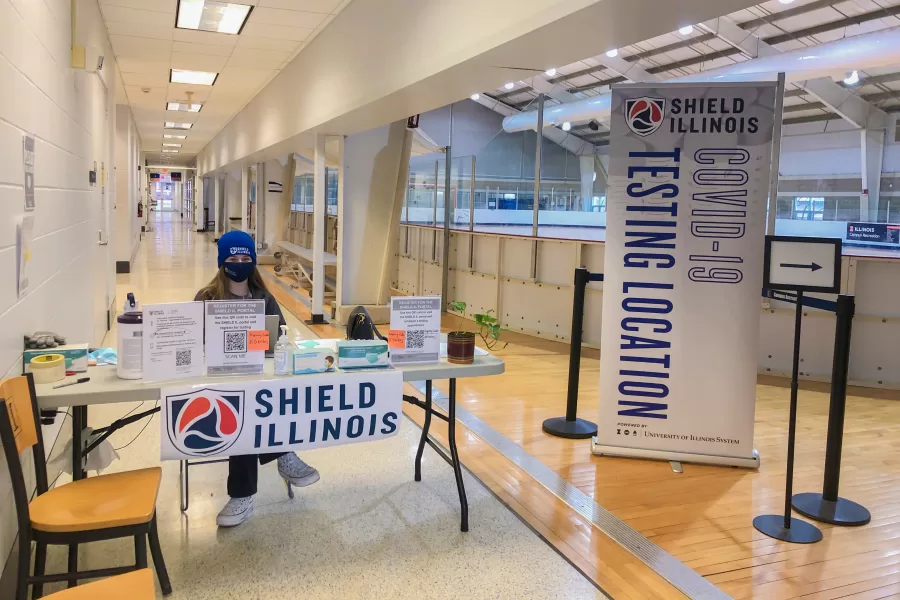Closure of Illini Union testing site creates concern among students, faculty
The COVID-19 testing center operated by Shield Illinois in the Campus Recreation Center East is the last one open on campus after the location in the Illini Union closed on Feb. 10.
Feb 16, 2023
Last updated on Feb. 18, 2023 at 09:14 p.m.
The Illini Union testing center closed on Friday, marking the closure of all but one University COVID-19 testing center.
Chancellor Robert Jones announced the change on Jan. 5 in a Massmail, along with other changes to COVID-19 policies at the University. The statement included an end to COVID-19 vaccination and testing requirements for students and faculty at the University.
With the decrease in testing centers, Chancellor Jones said the University will continue providing at-home testing resources.
“We will also continue to distribute free, rapid test antigen kits to students, faculty and staff at campus locations for the rest of the academic year,” Jones said.
Get The Daily Illini in your inbox!
CRCE remains open every weekday from 7:30 a.m. to 5:30 p.m. for students, faculty and community members to get tested.
Andy Yin, sophomore in Media, said he was unaware of the testing center closure.
“Without the Union testing center, I’m not really sure where to test for COVID now,” Yin said.
Yin said these changes make him nervous about the spread of COVID-19 on campus.
“I wish the University wouldn’t remove vaccine and testing requirements because it seems like we’re taking two steps back from all the previous safety measures,” he said.
Rebecca Lee Smith, associate professor of epidemiology, said she is less concerned about the decrease in testing centers and more about the removal of vaccination requirements.
“I would have preferred encouraging bivalent boosters, which are very effective,” Smith said.
According to the school’s COVID-19 testing dashboard, 94% of University students, faculty and staff are fully vaccinated against COVID-19 as of Friday. At the national level, 92% of U.S. adults are fully vaccinated and boosted as recorded by the Centers for Disease Control and Prevention.
The bivalent booster decreases the likelihood of contracting severe COVID-19 symptoms by 37% in comparison to former versions of the booster according to the National Institutes of Health.
The bivalent booster protects against severe symptoms of the original COVID-19 strain. It also prevents severe illness as a result of Omicron variants like the current dominant strain XBB.1.5, according to the John Hopkins Bloomberg School of Public Health.
Smith said she worries about the risk of possible reinfection due to changes in public health precautions on campus during the spread of a new strain.
“I fear that many people will be more susceptible to infection this semester than they expected,” Smith said.
The strain now accounts for 74.7% of all infections in U.S. adults as stated by the CDC.
Heading into the peak of flu season, Chancellor Jones said he encourages students and faculty to get the flu vaccine in addition to the booster.
“They continue to offer protection — for yourself and those around you — against the most serious effects of COVID-19,” Jones said.
As of Feb. 6, the CDC reported 171.97 million doses of the flu vaccine distributed across the nation.
Smith said it is never too late to get vaccinated against the flu or COVID-19. She also said she recommends using N95 masks which offer increased protection against respiratory illness.
“Stay home if you’re sick, take care of yourself and others and be gentle with each other,” Smith said.






